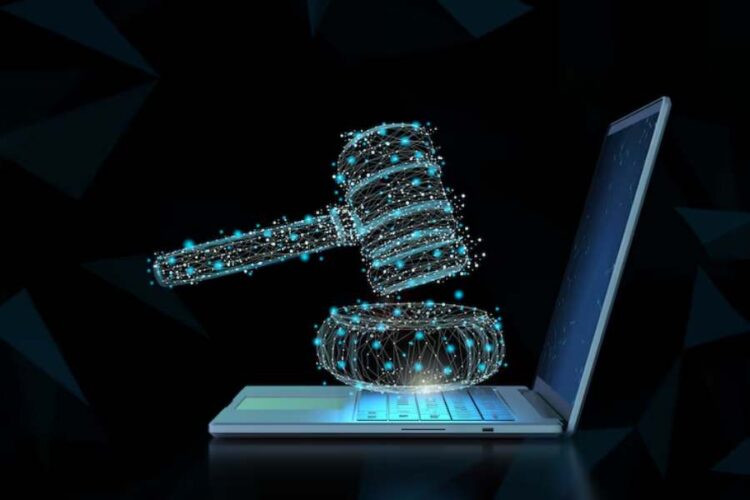The legal profession is changing rapidly, and one of the most powerful drivers of this change is legal technology. For decades, law has relied on paperwork, physical meetings, and time-intensive research. Today, much of this work has moved to digital systems. This shift does more than speed up operations—it transforms how legal services are delivered, how clients experience them, and how professionals are found in a digital marketplace.
In a world where so many services are online, efficiency is only one part of success. Visibility is the other. Legal tech provides the tools that make your work efficient, but it also creates new opportunities to make your expertise visible to the people who need it—especially through digital channels like social media.
What Legal Tech Really Means
Legal technology refers to the software, platforms, and systems that make legal services faster, more accurate, and more accessible. It is no longer just an add-on for large firms—small practices and solo lawyers are also using it to compete in a digital environment.
Today, legal technology includes:
- AI-Powered Research Tools: These scan thousands of legal cases in seconds, helping lawyers find relevant precedents quickly.
- Contract Lifecycle Management (CLM): Tools like contract automation handle drafting, signing, and renewals.
- E-Discovery Platforms: Instead of manually searching through thousands of emails and documents, software organizes and searches the data efficiently.
- Client Portals: Secure systems that let clients check case status, upload documents, and communicate directly online.
The main purpose is clear: save time, reduce errors, and make legal services accessible to more people.
But there’s an important side effect of moving all this work online: these digital systems also make law firms more visible—and that’s where social media comes in.
How Legal Tech Leads to Visibility
When legal services move into digital systems—online consultations, automated updates, secure portals—they become part of the same online ecosystem as other services. And in the digital space, it is not enough to simply exist. You need to be found.
Think of it like this:
- A lawyer who manages client work digitally can also use LinkedIn to share updates, case insights, or thought leadership articles.
- A firm that records educational webinars can upload them to YouTube, making its expertise accessible to anyone searching for legal guidance.
- And on faster, trend-driven platforms like TikTok, even short informative clips—“Do I need a lawyer to file a trademark?”, or “What’s the difference between mediation and arbitration?”—can reach massive audiences.
Here’s the key: likes, shares, and views aren’t just vanity metrics. On platforms like TikTok, the number of likes your content gets plays directly into the algorithm that determines reach. Just as increasing TikTok likes can boost early visibility, legal professionals who create and optimize this type of content can position themselves as trustworthy, accessible experts.
No, you don’t need to dance in your robe—but you do need to understand that the same tools that amplify influencers can amplify expertise. That’s the new frontier of visibility in legal tech.
Why Visibility Is Essential for Modern Legal Practice
In the past, a firm’s reputation was built through in-person networks and referrals. Today, many clients search for legal help the same way they search for any service: online.
Visibility is what connects your expertise to those clients. Legal tech makes it easier to deliver services efficiently, but without visibility, that efficiency goes unnoticed. Together, efficiency and visibility create a competitive advantage:
- Trust Building: A consistent online presence reassures potential clients.
- Professional Authority: Sharing knowledge on social media positions you as a thought leader.
- Expanded Reach: Visibility on platforms like TikTok or Instagram reaches clients far beyond your city or state.
- Sustainable Growth: Ongoing visibility ensures a steady stream of opportunities.
Challenges That Must Be Managed
Combining legal tech and visibility strategies does present challenges:
- Data Security: Protecting sensitive client data is critical when services move online.
- AI Bias: Automated systems must be monitored to ensure they do not reinforce bias.
- Regulation: Technology can evolve faster than the legal frameworks that govern it.
- Digital Literacy: Lawyers need to be comfortable using both legal tech and social outreach tools like TikTok, YouTube Shorts, and LinkedIn.
These challenges are real, but they can be managed with planning, training, and responsible implementation.
The Future of Legal Tech
Looking forward, legal technology will continue to grow, and visibility will be built into its evolution. We can expect:
- No-Code Automation: Tools that allow lawyers to create automated workflows without programming.
- AI-Enhanced Drafting and Research: More advanced support systems that make research and documentation faster.
- Integrated Visibility Tools: Platforms that combine client service with outreach features—perhaps even allowing direct uploads to TikTok or Instagram.
- Global Accessibility: Making legal services available in regions where access is currently limited.
The firms that succeed will be those that combine efficient service delivery with social-savvy visibility strategies.
FAQs
What is the main purpose of legal tech?
To make legal services faster, more accurate, and more accessible.
Is legal tech replacing lawyers?
No. It supports lawyers by automating routine work so they can focus on strategy and client needs.
Can small firms benefit from legal tech?
Yes. Affordable tools allow small firms to compete on both efficiency and visibility.
Will legal tech continue to grow?
Absolutely. Legal tech will play an even larger role in how legal services are delivered and found.
Should law firms be on TikTok?
If their goal is visibility—yes. Educational, professional, or even light-hearted legal content can go viral, attract new clients, and humanize your practice.










